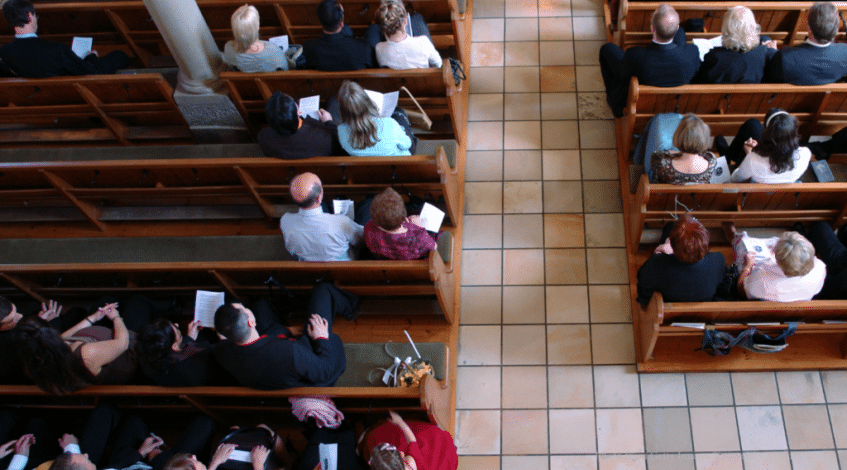
By Claire Henning
Back when I worked as a pastoral associate, I especially enjoyed worshipping at different parishes while on vacation. It felt like the beginning of a romance — the parishioners seemed nice, and all I knew about the community came from the church decor, the celebrant’s homily and the bulletin. Vacation Mass experiences were carefree because I didn’t see how their “sausage was made,” so to speak, as I did at home. When the holidays ended, the romance was over, and off I’d go, never to see them again.
A parish is like an organism — a living, breathing thing. Like all complex organisms, it has its visible and invisible parts. We can see the buildings, programs and staff. We can’t see varying degrees of faith and doubt, or institutional memory. Like other organisms, parishes must constantly adapt to their environment and be responsive to economic downturns, changing neighborhoods, secularism and pandemics. As Pope Francis once said: “If a parish proves capable of self-renewal and constant adaptivity, it continues to be ‘the church living in the midst of the homes of her sons and daughters.’”
Above all else, though, a parish is its people. For my parish, community is the living organism that communicates the Gospel message. “Now, you are the Body of Christ, and individually members of it” (1 Cor 12:27). For most of us, the parish is our entry point for living out what St. Paul means by being the Body of Christ.
In this age of global connectivity and deep division, what other organization or chat group can you belong to that includes Democrats and Republicans, rich and poor, sick and strong, newborns and the dying, the immigrant and the mayor, the deeply committed and those whose faith is hanging on by a thread? As James Joyce wrote, “Catholic means ‘here comes everybody.’”
All that diversity is good; all the division, however, can sometimes make it feel like we don’t all belong to the same church. Traditionalists long for the “pre-Vatican II church.” Progressives are frustrated at how long it can take the church to change. Proudly ethnic Catholics rely on cultural traditions and advocate for their inclusion. Christmas and Easter Catholics just want to know when to stand and when to kneel. There also are Catholics who no longer practice but — unable to resist the gravitational pull of the church — are still orbiting the parish, but from a distance.
Members of a parish do not assemble because they like each other. Rather, we gather together around the person of Christ, and do our best. Being part of a parish challenges us to grow in faith and charity by overriding our egos and opinions. That can mean hanging in there when you and the new pastor don’t see eye-to-eye, or the Mass schedule changes and your preferred time disappears.
Then again, sometimes belonging to a parish means hot dishes delivered to your door by people you barely know, but who are praying for you.
Forming his first faith community, Jesus chose a hothead, a tax collector, a traitor, a doubter, a fanatical nationalist, and various thickheads and pessimists. Like the Apostles, each of us have stories of being graced and wounded. None of us is whole, nor fully mature. Hence, there will always be a great variation in the commitment and participation of people in a parish.
We are all so different, and yet, miraculously, here we are, 2,000 years later, still gathering around the Scriptures and the Eucharist, as Jesus asked of us at the Last Supper. We’re doing it, even if sometimes it’s with a heavy sigh. And whether celebrating with stranger-Catholics while on vacation or in the comfort of our most familiar pew spots, we have a home in our parishes.
I always think of that when my holiday has ended. Working in parish ministry sometimes drew me deeply into the lives of fellow parishioners. At Mass, I would glance about, knowing a little of the personal struggles of the people around me — marriage troubles, loneliness, health concerns — and I would silently pray for their intentions.
That meant I wasn’t just invested in the liturgy — I was invested in the lives of the people of my parish. I had moved from “attending” to “belonging.” It is not always easy, but it is always “home.”
Claire Henning, D. Min., worked as a pastoral associate in her home parish for many years before leaving to co-found parishcatalyst.org. She currently writes at catholic-conversations.com.

